The “Pearl of the Indian Ocean,” Sri Lanka, is a mesmerizing nation with a rich history, lively culture, and magnificent scenery. While it draws tourists from all over the world, it also provides fantastic chances for volunteers. Volunteering in Sri Lanka allows you to not only enjoy its natural beauty but also have a beneficial influence on local populations. This post will look at the many volunteering possibilities in Sri Lanka and the significant benefits they provide.
Volunteering in Sri Lanka: Teaching and Education
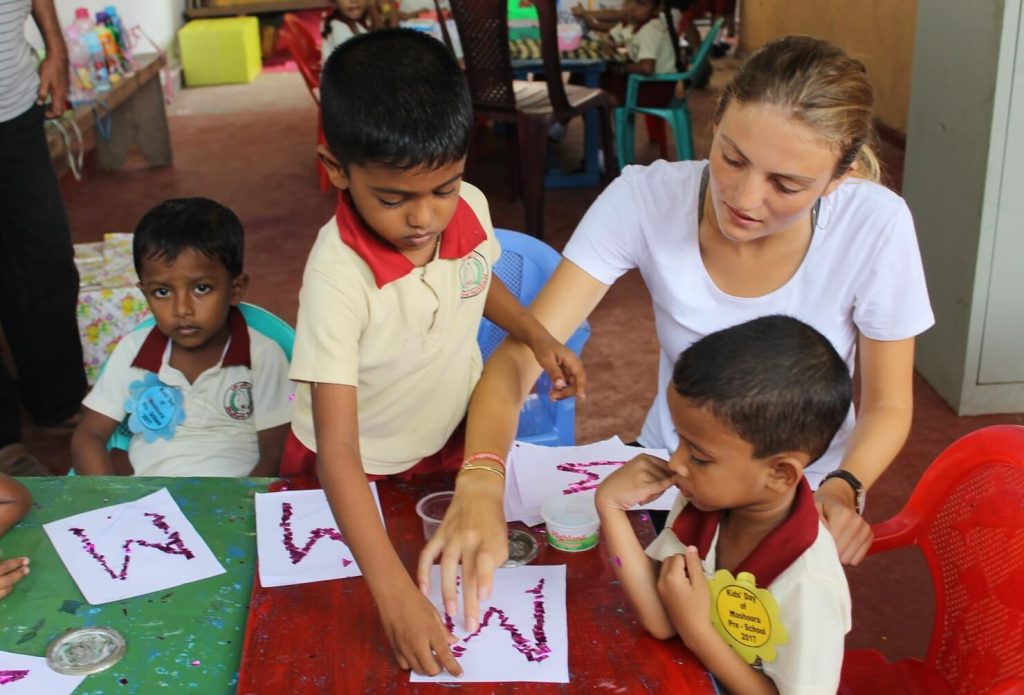
Participating in teaching and education programs is one of the most satisfying ways to contribute to Sri Lanka’s growth. Many rural communities are underserved in terms of educational resources and competent instructors. You may help bridge this gap as a volunteer by teaching English, math, science, or other subjects to children and adults. Volunteering in Sri Lanka while sharing your knowledge and abilities empowers people and allows them to achieve greater futures.
Teaching English:
English proficiency is highly recognized in Sri Lanka since it leads to outstanding work prospects and broadens one’s perspectives. When volunteering in Sri Lanka, volunteers must prioritize English language instruction because many rural regions need more certified English teachers and resources. By devoting your time and abilities to teaching English, you enable people to communicate effectively, extend their educational opportunities, and improve their employability in a globalized world.
Subject-Specific Teaching:
Volunteers can help by teaching disciplines other than English, such as mathematics, science, computer skills, and vocational training. You assist students in obtaining a deeper grasp of these areas and build important skills for their future efforts by sharing your knowledge and experience. Volunteers may support local teachers in the classroom by crafting effective lesson plans and arranging interactive activities that promote critical thinking and problem-solving skills.
Tutoring and Mentorship
Many children in Sri Lanka would benefit immensely from one-on-one instruction and mentoring. As a volunteer tutor or mentor, you may give kids struggling academically or needing advice-specific attention. Whether with homework, study methods, or career guidance, your assistance may dramatically enhance their academic achievement and self-confidence.
Volunteering in Sri Lanka: Community Development
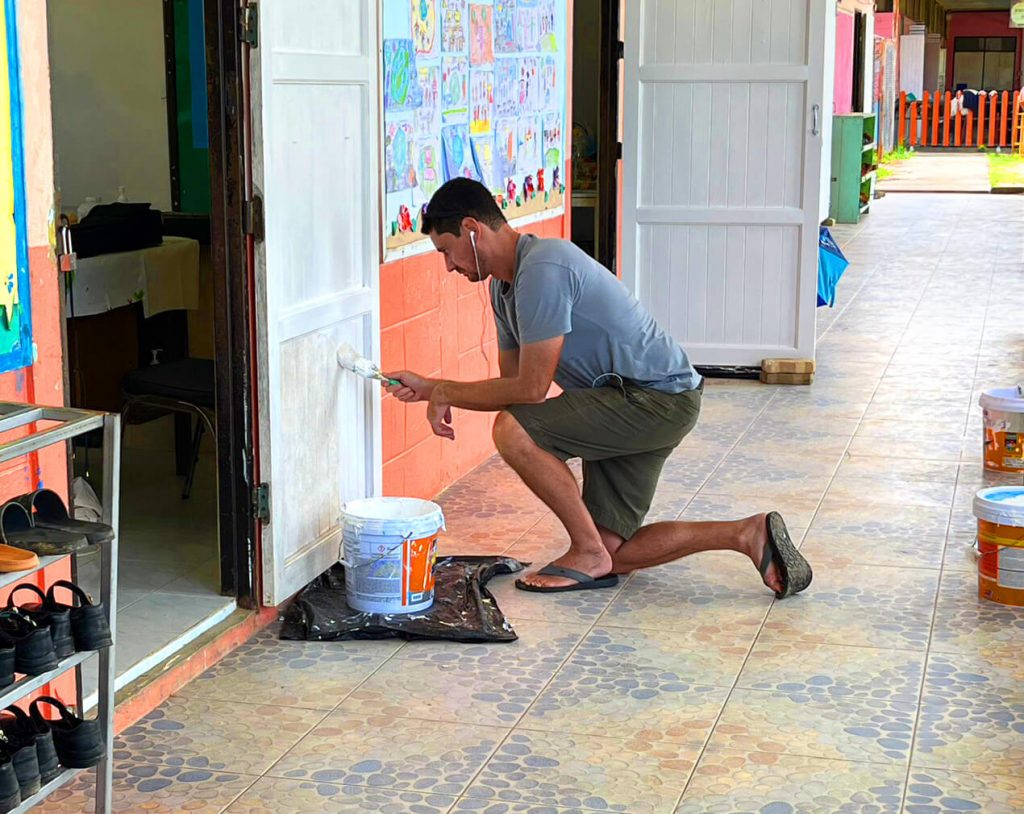
Volunteers who engage in community development initiatives may considerably benefit Sri Lankan communities, particularly those stricken by poverty or natural catastrophes. These initiatives aim to improve infrastructure, renovate schools or community centers, and develop long-term clean water and sanitation solutions. Participating in community development programs allows you to actively elevate impoverished communities and improve their quality of life.
Infrastructure Development:
Many rural communities in Sri Lanka need more infrastructure, such as schools, community centers, and public restrooms. As a volunteer in community development, you may help improve these vital areas by working on infrastructure projects. This may include building or renovating structures, establishing safe playgrounds, increasing sanitation, or adopting renewable energy solutions while volunteering in Sri Lanka.
Women Empowerment:
Gender equality and women’s empowerment are critical for long-term development. Volunteers in Sri Lanka can participate in programs to empower women, such as entrepreneurship, vocational training, and access to education. Volunteers may assist women in improving their capacities, gaining confidence, and establishing routes to economic independence and social change by providing skill training, mentorship, and support.
Sustainable Agriculture and Rural Development:
Agriculture is essential to the Sri Lankan economy, particularly in rural areas. Volunteers interested in sustainable agriculture and rural development can help with initiatives that promote organic farming techniques, improve irrigation systems, and implement efficient agricultural practices. You may assist in improving production, raising income levels, and ensuring food security for local populations by sharing knowledge and engaging directly with farmers.
Volunteering in Sri Lanka: Conservation and Environmental Initiatives
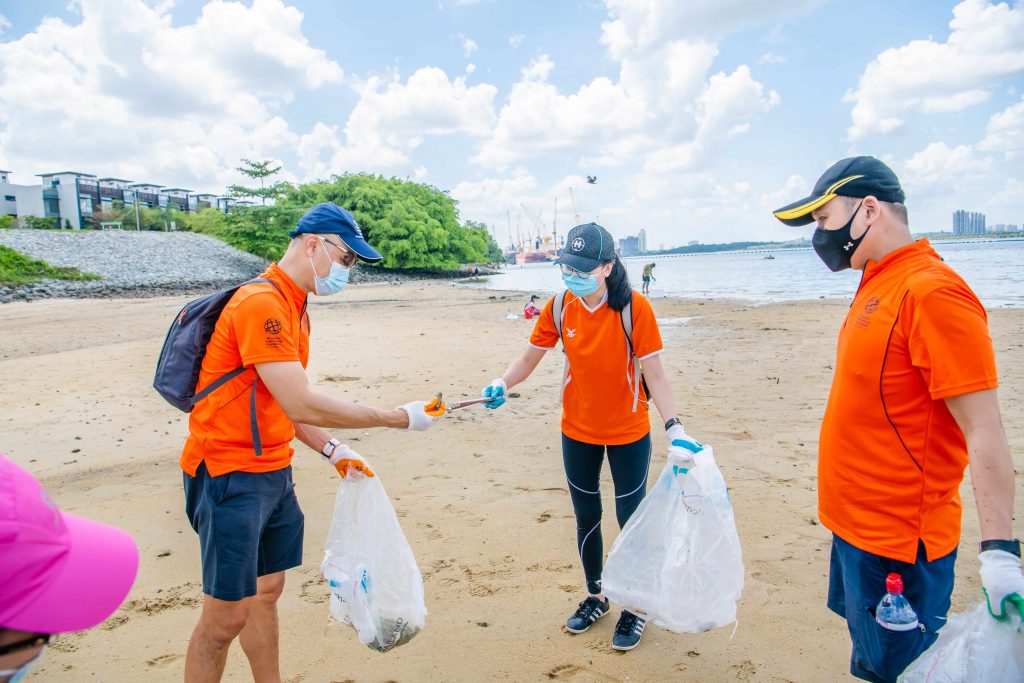
Sri Lanka is well-known for its exceptional biodiversity and natural beauty. Volunteering in conservation and environmental programs allows you to help preserve the country’s distinct ecosystems. There are several chances to collaborate with local groups in protecting endangered species, conducting research, and promoting sustainable practices, ranging from maritime conservation activities to animal protection. Volunteers can participate in sea turtle conservation programs, forestry projects, or efforts that enhance environmental awareness and promote eco-tourism.
Marine Conservation:
The coastal parts of Sri Lanka are home to dynamic marine ecosystems, including coral reefs, sea turtles, and diverse marine species. Volunteers can help with marine conservation projects aimed at safeguarding these vulnerable ecosystems. This might include beach cleanups, turtle protection programs, and increasing awareness about sustainable fishing techniques.
Wildlife Protection and Conservation:
Sri Lanka is home to diverse wildlife, including elephants, leopards, and various bird species. However, these creatures face severe dangers from habitat loss, poaching, and human-wildlife conflict. Volunteers can help with wildlife conservation efforts such as research, habitat restoration, and animal monitoring. Volunteers can also participate in educational outreach initiatives to create awareness about the importance of animal conservation and ethical tourist practices.
Reforestation and Forest Conservation:
Deforestation is a severe problem in Sri Lanka since it causes soil erosion, biodiversity loss, and climate change effects. Volunteers may help with reforestation by participating in tree-planting campaigns, caring for seedlings, and rehabilitating damaged forest areas. These initiatives contribute to creating critical animal habitats, mitigating climate change, and protecting watersheds, assuring a sustainable future for Sri Lanka’s ecosystems.
Volunteering in Sri Lanka: Healthcare and Medical Assistance
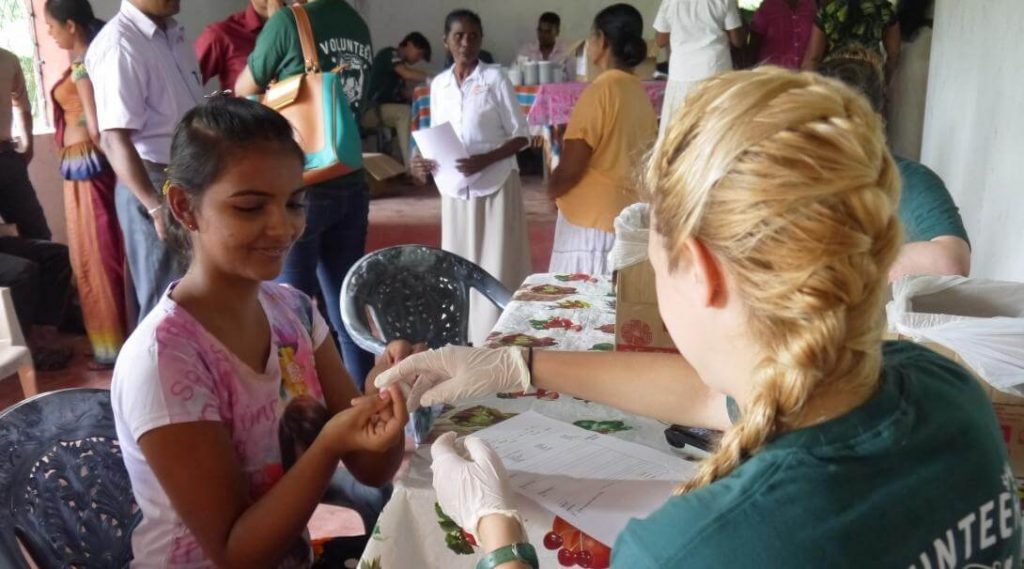
You are volunteering in healthcare and medical aid initiatives benefits underprivileged populations in Sri Lanka. One option is working at hospitals, clinics, or mobile health camps, as is delivering medical care and health education in distant areas. Whether you have a background in healthcare or are ready to help as a general volunteer, your actions significantly impact the well-being of those who do not have access to good medical facilities.
Medical Outreach Programs:
Volunteers can help with medical outreach initiatives to deliver healthcare to disadvantaged groups, particularly in distant and rural places. These initiatives frequently entail the establishment of temporary clinics or mobile health camps that provide general medical checkups, essential treatments, and health education. Volunteering in these programs helps to improve the general well-being of those who do not have regular access to healthcare.
Assisting in Hospitals and Clinics:
Volunteering at hospitals and clinics allows you to actively assist medical professionals in providing care to patients. Your assistance is much appreciated, whether you have a background in healthcare or are prepared to assist in non-medical chores. Volunteers can help in various ways, including patient care, administrative tasks, aiding with procedures, and providing companionship to patients. Your presence and aid comfort individuals in need while also reducing the workload of medical personnel.
Health Education and Awareness:
Preventive healthcare and health education are critical to overall community well-being. Volunteers can help with health education programs such as seminars and awareness campaigns on cleanliness, nutrition, reproductive health, and illness prevention. You can help develop healthier communities and reduce the prevalence of avoidable diseases by empowering individuals with knowledge and supporting healthy behaviours.
Volunteering in Sri Lanka: Orphanages and Social Welfare
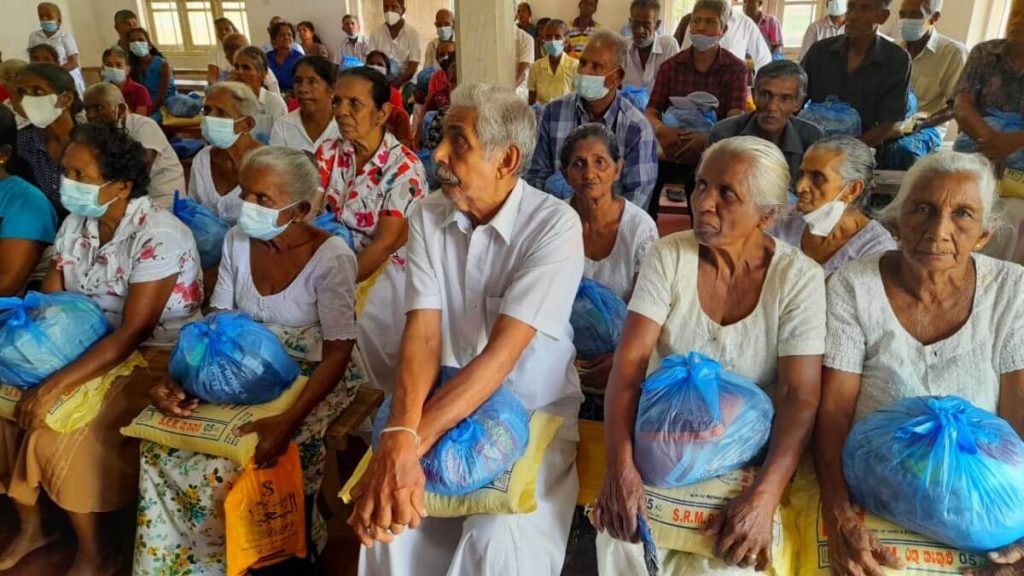
Volunteering at orphanages and social welfare organizations enables you to make a positive difference in the lives of children and vulnerable groups. These organizations offer refugees, education, and assistance to children who have lost their families or are in complex situations. Volunteers can help with various responsibilities, including teaching, planning recreational programs, offering emotional support, and aiding with everyday work. You contribute to their development and provide hope for a better future by nurturing these little lives.
Providing Emotional Support:
Volunteers can provide much-needed emotional support to children and adults in orphanages and other social welfare organizations. Spending quality time with them, participating in talks, playing games, and providing companionship creates a sense of belonging and aids in the alleviation of emotions of loneliness or abandonment. Your presence can change their emotional well-being and contribute to their overall growth.
Assisting in Daily Care:
Volunteers can help with everyday care tasks, including meal preparation, feeding, bathing, and dressing. These responsibilities guarantee that the fundamental requirements of persons in institutions are satisfied. You may foster a supportive and stable atmosphere for their physical and mental well-being by actively engaging in their daily routines.
Organizing Recreational Activities:
Recreational activities are essential for the complete development of children and adults in orphanages and social welfare settings. Volunteers can plan and participate in various activities, such as sports, arts and crafts, music, and cultural events. These activities allow them to have fun & express themselves and help them develop cognitively, socially, and physically.
Conclusion
Volunteering in Sri Lanka allows you to immerse yourself in the country’s rich culture while significantly impacting its people’s lives. Your contributions will be highly recognized and influential whether you educate, participate in community development, conservation, healthcare, or assist social welfare programs. Working with local organizations and groups will allow you to understand the nation better, make significant relationships, and create memorable experiences. Make a conscious decision to contribute to Sri Lanka’s well-being, and you will leave a great legacy and experience personal growth and fulfilment.
People also read:

